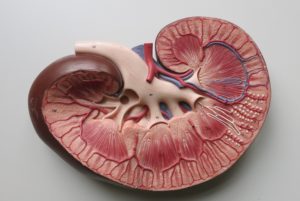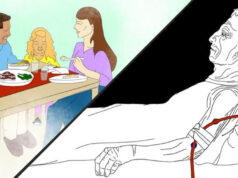
A new study by Columbia University Irving Medical Centre (CUIMC; New York, USA) researchers has found that some US centres routinely skip their highest-ranking waitlisted candidates to give donor kidneys to a lower-ranked patient. This practice, known as “list diving,” occurs with little oversight and transparency, harming some patients and possibly contributing to disparities in organ transplantation and discard of donor organs, according to a CUIMC press release.
“It’s an open secret that some transplant centres regularly apply their own criteria for matching donor kidneys to eligible patients,” states lead author Sumit Mohan (Vagelos College of Physicians and Surgeons, New York, USA), “but no one has examined if this practice is widespread.”
In the study, published in JAMA Network Open, Mohan and colleagues analysed approximately 6,000 transplant candidates and 4,700 transplants at 11 centres between 2015 and 2019. Each centre was geographically isolated, meaning that it could decline the offer of a kidney without losing it to another centre, but still accept the organ for a lower-priority patient.
The study found that most kidneys offered to these centres (68%) were not placed with the top-ranked candidates on the waiting list and instead went to candidates further down the centre’s list. Most often, centres cited concerns about organ quality when declining the offer for the top-ranked candidate.
According to the researchers, declined offers may be rooted in the centres’ belief that the top-ranked patient is likely to receive better quality organ offers within a reasonable timeframe, and that shorter wait times for lower-priority candidates would offset the lower organ quality. “For example, if you have a 25-year-old at the top of the list and the centre is offered a kidney from a 75-year-old donor, the centre might decline that offer, believing it’s better suited for an older candidate lower down on the list,” Mohan says.
However, the new study suggests other factors at play, as only 44% of the highest-quality kidneys were placed with the highest-ranked candidates. “It seems that transplant centres often overlook their top candidates and there are many organ declines that we don’t have a good explanation for,” Mohan says.
Ethics of list diving
There are several issues with list diving, according to the researchers. Although skipped candidates may receive a future offer, and it may even be a higher-quality organ, it’s not uncommon for patients to die while waitlisted or deteriorate to the point that they are de-listed after having had offers declined on their behalf without their knowledge. In addition, declined offers create inefficiencies that add to the time that an organ is kept on ice, compromising organ viability, the press release argues. At present, one in four viable donated kidneys are discarded, at great cost to patients and to society given that kidney transplantation is “the most cost-effective therapy for end-stage kidney disease (ESKD)”.
Another concern outlined in the press release is that organs are typically declined on behalf of patients. “Patients are rarely involved in the decision-making process and transplant centres do not currently inform patients when an organ offer is declined on their behalf,” Mohan says. “We should give patients more say in the process and have them participate in shared decision making.”
List diving may contribute to disparities in access to transplantation, the authors suggest. They state that other studies have demonstrated that organ declines can be subjective, with differences reported based on the recipient’s race and other factors, such as obesity.
The system could benefit from improved allocation algorithms that more precisely match specific organs to recipients, the researchers say, and more transparency in the way organs are allocated.
“All told, list diving undermines the intended objective design of the allocation system in a manner that is shrouded from both patients and regulatory oversight,” Mohan says. “And it risks undermining the trust that patients and donor families have in a fair and equitable system.”












